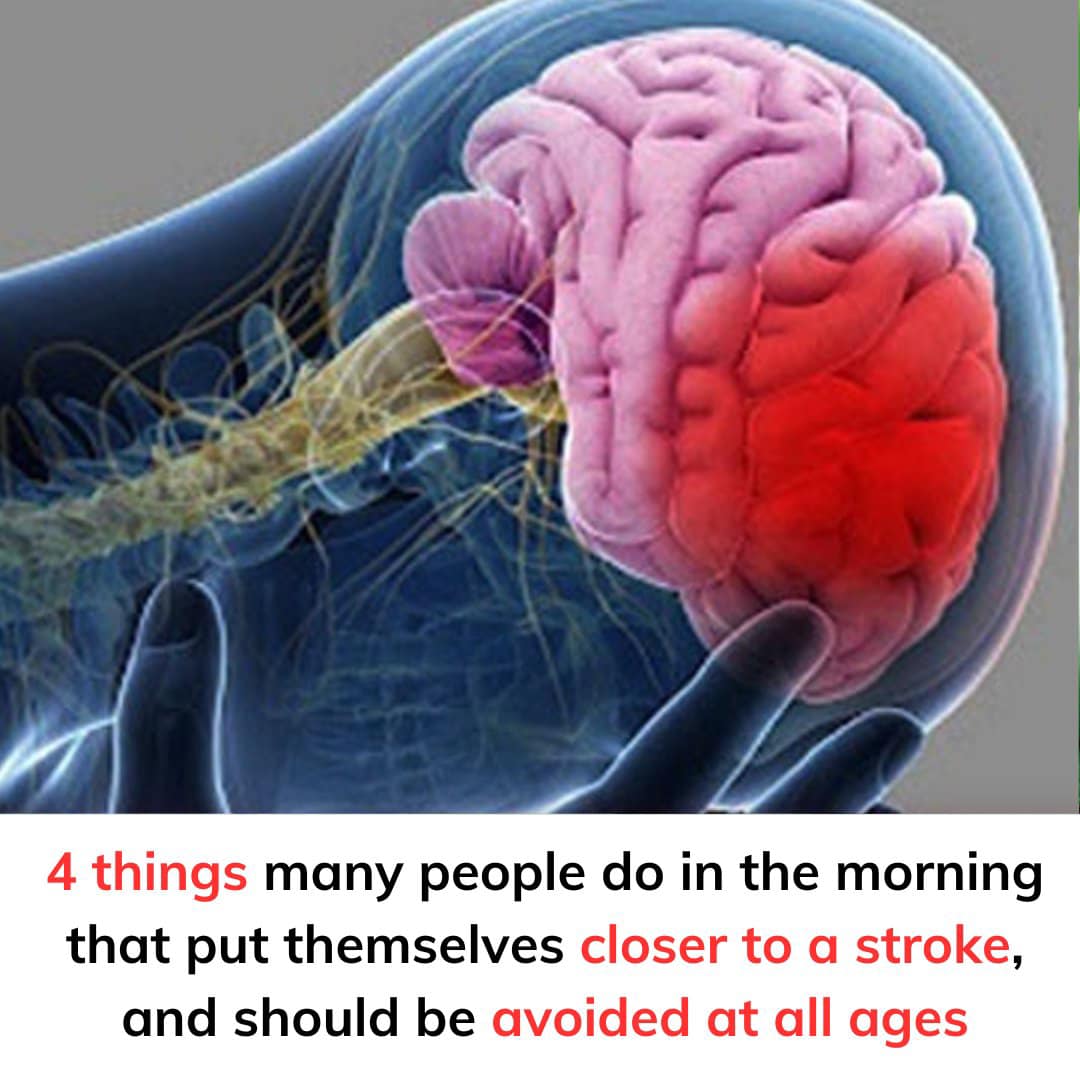Stroke is a serious health condition that can affect anyone, regardless of age. While it was once thought to primarily impact the elderly, an increasing number of young people are now suffering from strokes. A stroke can have devastating consequences, including permanent disability or even death, if not detected and treated in time. Surprisingly, some seemingly harmless morning habits can significantly increase the risk of stroke. According to Dr. Nguyen Xuan Quang from the Military Medical Academy, there are four common morning habits that should be avoided to reduce the risk of stroke.

1. Jumping Out of Bed Immediately Upon Waking Up Many people have the habit of jumping out of bed as soon as they wake up. However, health experts warn that this sudden action can pose serious risks, especially in the morning. During sleep, the parasympathetic nervous system dominates, causing the heart rate to slow down, blood pressure to drop, and the heart to contract more gently. When you suddenly stand up, the sympathetic nervous system kicks into gear, rapidly increasing your heart rate and blood pressure. This abrupt change can put significant pressure on the small blood vessels in the brain, increasing the likelihood of a hemorrhagic stroke.
Dr. Quang advises taking a more gradual approach to waking up. After opening your eyes, remain in bed for one to two minutes. Use your hands to gently massage your face, head, neck, and eyes. This gradual transition allows your body to adjust to being awake and reduces the risk of sudden cardiovascular stress.
2. Drinking a Glass of Diluted Salt Water Immediately After Waking Up Many people believe that drinking diluted salt water first thing in the morning has health benefits, such as killing bacteria in the mouth, strengthening gums, and improving digestion. However, this habit can actually be harmful. Consuming too much salt has long been linked to high blood pressure, kidney damage, and an increased risk of stroke.
Additionally, drinking salt water on an empty stomach can irritate the esophagus and stomach lining, potentially leading to inflammation or even ulcers over time. Instead of salt water, it’s better to drink a glass of plain, room-temperature water to rehydrate your body and kickstart your metabolism.
3. Exercising Too Early in the Morning Exercise is widely recognized as beneficial for overall health, but timing is crucial. Exercising too early in the morning, especially before sunrise, can expose you to cold temperatures. In low temperatures, blood vessels tend to constrict, which can increase the risk of myocardial infarction, cardiovascular diseases, and stroke.
For people with pre-existing health conditions, early morning exercise can also lead to fatigue, inadequate rest, and heightened vulnerability to injuries. Dr. Quang recommends waiting until after sunrise when temperatures are warmer and the body is more awake and ready for physical activity. Gentle stretching or light exercises indoors can also be a safer option for early risers.
4. Drinking Too Much Water Immediately After Waking Up Staying hydrated is essential for overall health, and drinking water in the morning is a great way to start the day. However, consuming a large quantity of water all at once can place unnecessary stress on the heart. This is particularly risky for individuals with underlying cardiovascular conditions, as it can cause symptoms like shortness of breath, a rapid heartbeat, and even stroke.
Instead, it’s best to drink water in moderation. Experts recommend starting the day with a small glass of water, approximately 200–300ml, sipped slowly rather than chugged all at once. This approach ensures proper hydration without straining your cardiovascular system.
Small Changes, Big Health Benefits The morning sets the tone for the rest of the day, and seemingly minor habits can have significant long-term effects on our health. Adjusting your morning routine to eliminate these risky habits can reduce your stroke risk and improve your overall well-being.
Healthier Morning Habits Include:
- Taking a moment to wake up gradually instead of jumping out of bed immediately.
- Drinking plain, room-temperature water instead of salt water.
- Exercising after sunrise or opting for light stretches indoors.
- Hydrating moderately with small sips of water rather than consuming large amounts all at once.
Stroke Prevention Through Awareness Stroke prevention isn’t just about major lifestyle changes—it’s also about paying attention to the little habits that often go unnoticed. Whether it’s how you get out of bed, what you drink, or when you exercise, every decision contributes to your overall health.
Being aware of these habits and making simple adjustments can go a long way in reducing your risk of stroke. Stroke prevention is a responsibility we all share, and knowledge is our most powerful tool. By taking proactive steps and adopting healthier morning habits, you’re investing in your long-term health and well-being.
In conclusion, stroke is a life-threatening condition that doesn’t discriminate based on age. However, many strokes are preventable with the right habits and precautions. By avoiding sudden movements upon waking, skipping salt water, timing exercise appropriately, and drinking water in moderation, you can protect yourself from unnecessary risks. Share this knowledge with your loved ones—it might just save a life.





